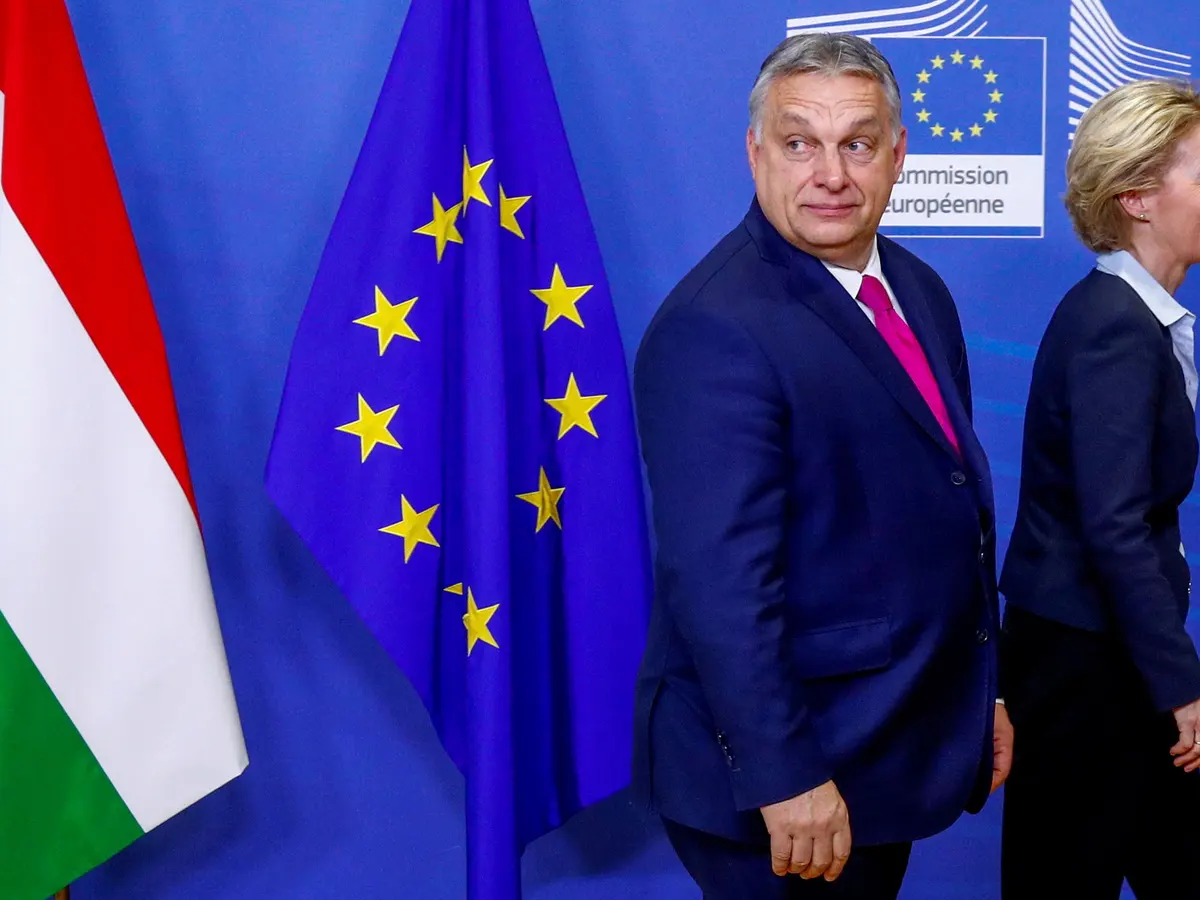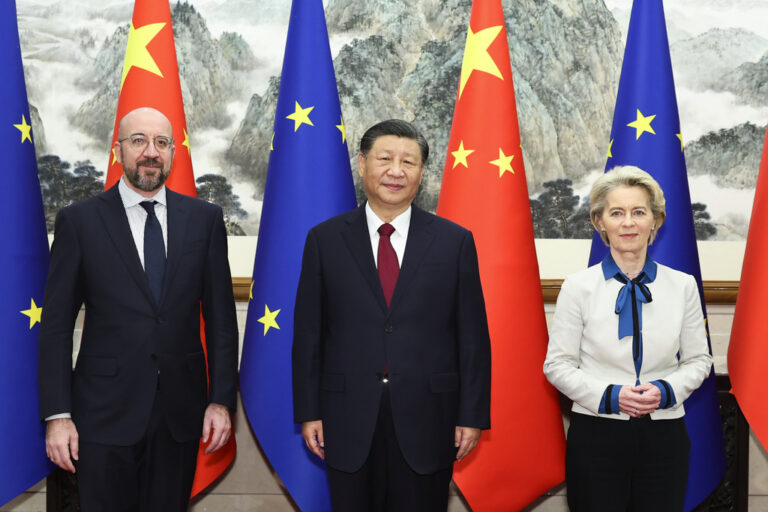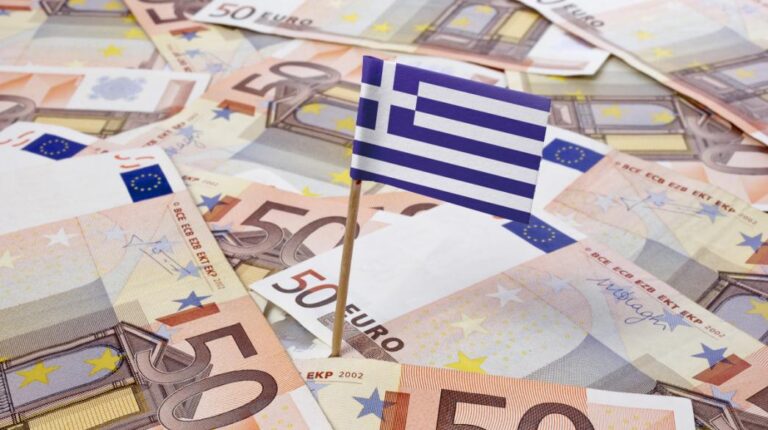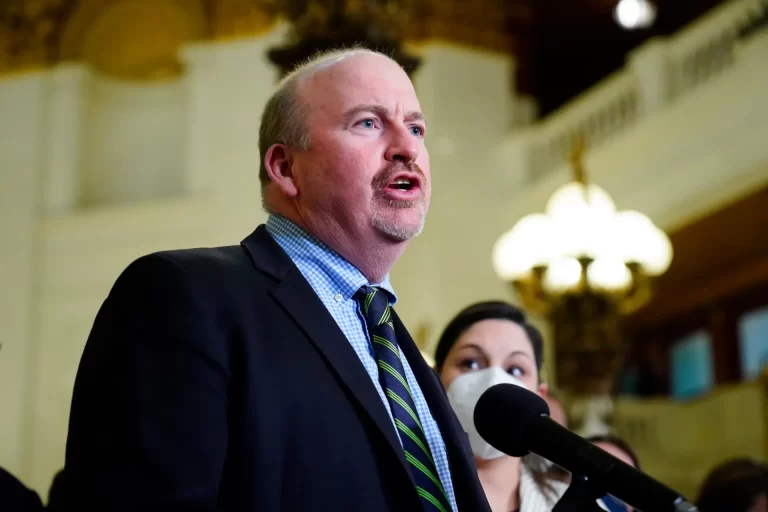From Ukraine to the climate crisis, the union is beset by shocks. It can no longer afford to let Hungary give it the runaround
Deep into the Trump presidency, I jokingly asked a French friend who obsessively follows US politics (and political comedy shows), and who also has significant experience with China, if he would rather be in charge of the US, China or the EU. I expected him to pick the EU: the US seemed about to split wide open at the seams, and China seemed alone and friendless, with a debt crisis looming. Europe, on the other hand, was stable, prosperous, newly free of the British brake on continued integration, and otherwise merely overlooked.
That answer doesn’t seem so obvious now, not just because Donald Trump is (for the moment) gone, but also because the EU can’t seem to find a moment to breathe in the midst of never-ending polycrises.
The EU is dealing with outside shocks: it absorbed the double blow of Russia’s invasion of Ukraine and the economic costs – including consumer-facing inflation – that came with the disruption to its energy supply. And then when the US finally started pulling its weight on the climate crisis, it did so in a way that amounted to indirect siphoning from Europe’s economy instead of just paying the true costs of its own polluting. Never mind that Europeans have, for decades, emitted far less per capita than Americans, who, despite having substantially higher median disposable incomes than, say, the French, pay roughly half as much for petrol – and only $0.184 a gallon of that in tax, an amount that hasn’t budged since 1993. (Somehow they manage to remain insufferable whiners about how much it costs to fill the tanks of the increasingly enormous cars they choose to drive.)
And the EU is dealing with internal shocks: for years, the tag-team of illiberal governments in Poland and Hungary protected each other from consequences at the EU level as they rolled back democracy and civil rights at home. Poland’s now outgoing Law and Justice (PiS) party undermined the rule of law, the judiciary, women’s rights and the media; Hungary’s Putin-friendly Viktor Orbán has done all of the same and now threatens to scuttle the formal start of Ukraine’s eventual accession to the EU, which is meant to happen at a summit of the 27 leaders next week.
The European Commission is reportedly considering unblocking €10bn earmarked for Hungary, but currently withheld for rule of law violations, in exchange for Orbán’s cooperation on Ukraine. This would be foolish in the short term, and damaging in the long term, setting a precedent for future wannabe autocrats that Orbán-style behaviour doesn’t entail serious consequences. Emmanuel Macron – who has a long and failed history of trying to placate autocrats – invited Orbán to dine at the Élysée palace to try to head off his blackmail.
It’s also totally unnecessary. Donald Tusk’s victory in Poland has changed the equation. Even though Geert Wilders’ win in the Netherlands raises the spectre of a new Eurosceptic duo protecting each other, his radical right PVV still has only has 37 of 150 seats in the Dutch parliament, and is unlikely to succeed in forming a government.
The EU finally has a window to act against the concrete threat Orbán poses to the rule of law, democracy and the union’s own ability to function. Now it must use it. Article 7 of the treaty on European union allows for a member state’s membership rights to be suspended if it “seriously and persistently breaches the principles on which the EU is founded”, defined as “respect for human dignity, freedom, democracy, equality, the rule of law and respect for fundamental rights, including the rights of persons belonging to minorities”.
This has been applicable to Hungary for years now, even if actually initiating and following through on a suspension has been politically unfeasible. That has to change. European voters see “muddling through” happening everywhere. They see impunity for the powerful, and for nobody else. They see authoritarian rulers flouting the basic principles of the political union they belong to – even as they welcome its money with open arms – without ever facing consequences. Politics is messy, and diplomacy, “the art of the possible”, even more so. But the EU is more than just a collection of states, and if its laws are never enforced, then they will cease to have much meaning.
There is a collection of urgent actions the EU could move forward with to make itself more democratic, nimble and effective. These include setting a common floor for corporate tax rates and collecting up to that amount as EU “own resources” to replace national contributions; far more ambitious green infrastructure and climate spending with a pan-European vision, rather than a collection of national ones; perhaps even setting up a single, directly elected European “president” rather than the competing dual presidencies of the commission and the council. (What better posthumous finger in Henry Kissinger’s eye could there be than having someone in Europe to call only now that he is – finally – in the grave?)
But to move forward on any of that, the EU itself has to be watertight when it comes to corruption, democracy, the rule of law and the rest of the values it’s built on. Step one is suspending Hungary’s vote until it once again meets those criteria. Time to stop muddling and dawdling and thumb-twiddling and just do it.
Source: The Guardian







